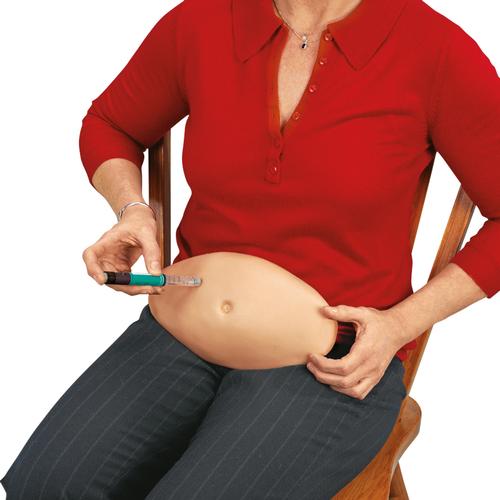Let’s talk insulin.
Mention the “I word” into a low carbohydrate dieter, or even a clean eater, and you can virtually obtain them turn white as the blood drains off their face in abject horror.
In their mind, insulin is the big villain from the nutrition world.
They make reference to insulin as “the storage hormone” and think that anywhere of insulin in the body will immediately cause you to lay out new fat cells, gain weight, and lose any a higher level leanness and definition.
Fortunately, it’s not quite the truth.
In reality, while simplifying things in terms of nutrition and training can often be beneficial, it is a gross over-simplification of the role of insulin inside you, as well as the facts are entirely different.
Far from is the dietary devil, insulin is actually not even attempt to be afraid of whatsoever.
What Insulin Does
Part one from the insulin worrier’s claim (that insulin is really a storage hormone) is valid Body of insulin’s main roles would be to shuttle carbohydrate that you just eat round the body, and deposit it where it’s needed.
I am not saying that every the carbs you consume become fat though.
You store glycogen (carbohydrate) within your liver, your muscles cells along with your fat cells, and it will only get shoved into those pesky adipose sites (fat tissue) once the muscles and liver are full.
Additionally, unless you have a calorie surplus, you merely cannot store body fat.
Look at it this way –
Insulin is like the employees within a warehouse.
Calories will be the boxes and crates.
You could fill that warehouse fit to burst with workers (insulin) however, if there aren’t any boxes (calories) to stack, those shelves won’t get filled.
So if you’re burning 3,000 calories each day, and eating 2,500 calories (as well as 2,999) the body can’t store fat. No matter whether those calories originate from carbs or sugar, you do not store them, because your body needs them for fuel.
Granted, this wouldn’t be earth’s healthiest diet, speculate far as science is concerned, it boils down to calories in versus calories out, NOT insulin.
It is not just Carbs
People fret over carbs having the biggest effect on insulin levels, and just how carbohydrate (particularly in the simple/ high-sugar/ high-GI variety) spikes levels of insulin, but a lot of other foods raise insulin too.
Pure whey protein, for example, is extremely insulogenic, which enable it to cause a spike, particularly when consumed post workout.

Dairy products too have a relatively large effect due to the natural sugars they contain, as well as fats can raise levels of insulin.
Additionally, the insulin effect is drastically lowered during the day a mixed meal – i.e. one that contains carbs plus protein and/ or fat.
This slows the digestion and also the absorption in the carbs, bringing about a much lower insulin response. Add fibre in the mix too, and the raise in insulin is minimal, so even if i was concerned with it before, the perfect solution is is simple – eat balanced, nutrient-dense meals, and you will not need to worry.
Insulin Builds Muscle
Finding comfort the thought of insulin like a storage hormone, along with the notion which it delivers “stuff” to cells:
Fancy going for a guess at what else it delivers, beside carbohydrate?
It delivers nutrients on your muscle tissues.
Therefore, in case you are forever trying to keep insulin levels low for nervous about fat gain, it’s highly unlikely you’ll get ripped optimally. It’s because of this that I’d never put clients planning to get buff making lean gains with a low-carb diet.
No Insulin Can certainly still Equal Lipid balance
Unlike all those low-carb diet practitioners yet again, you’ll be able to store fat when levels of insulin are low.
Daily fat when consumed in the caloric surplus is in fact transformed into extra fat tissue far more readily than carbohydrates are, showing once again, excess weight or weight-loss comes down to calories in versus calories out, not insulin levels.
Why low-Carb (and Low-Insulin) Diets “Work”
Many folk points towards scientific and anecdotal evidence low-carb diets being reasoning in order to keep insulin levels low.
I can’t argue – a low-carb diet, where insulin release is kept low can simply work, however this has very little to do with the hormone itself.
If you cut carbs, you normally cut calories, putting you in a deficit.
Additionally, the average joe will eat more protein and much more vegetables when going low-carb, in order that they feel far fuller and consume less food. Plus, protein and fibre both have a high thermic effect, meaning they really burn more calories in the digestion process.
Net profit: Insulin – Not So Bad All things considered
There’s no need to bother about insulin in the event you –
Train hard and often
Follow a balanced macronutrient split (i.e. ample protein and fat, and carbs to fit activity levels and preference.)
Are relatively lean.
Eat mostly nutrient-dense foods.
Haven’t any problems with diabetes.
You may still store fat with low levels of insulin, and you’ll get rid of fat and make muscle when insulin is found.
Considering insulin in isolation as either “good” or “bad” is a real prime demonstration of missing the forest for the tress, so chill out, and let insulin do its thing while you target the big picture.
To read more about buy semaglutide online just go to this popular internet page.

